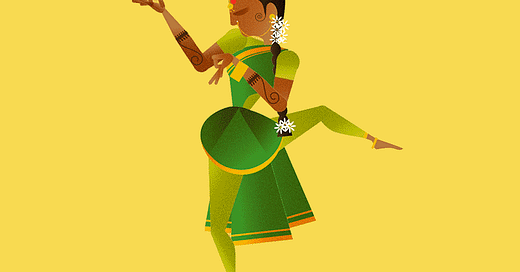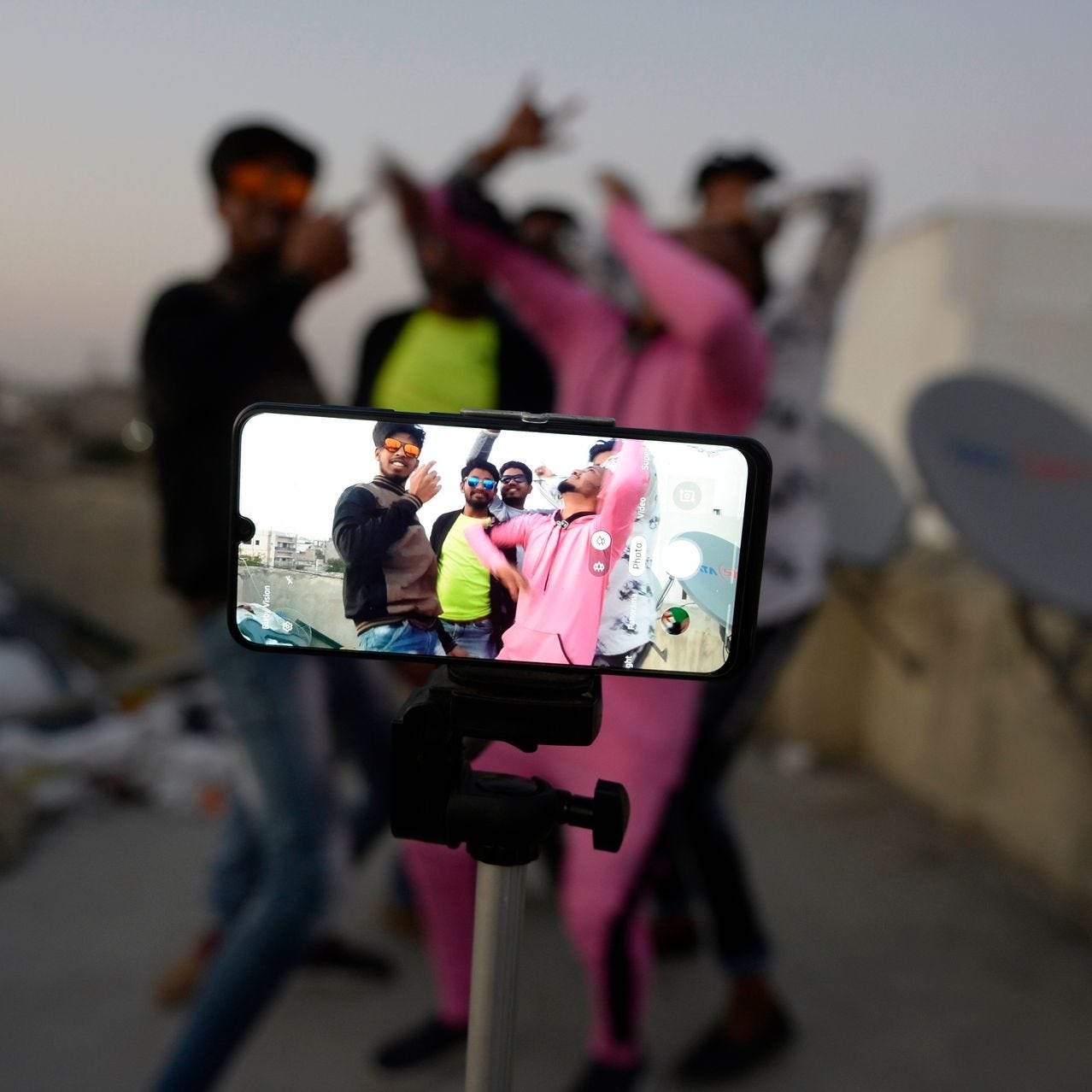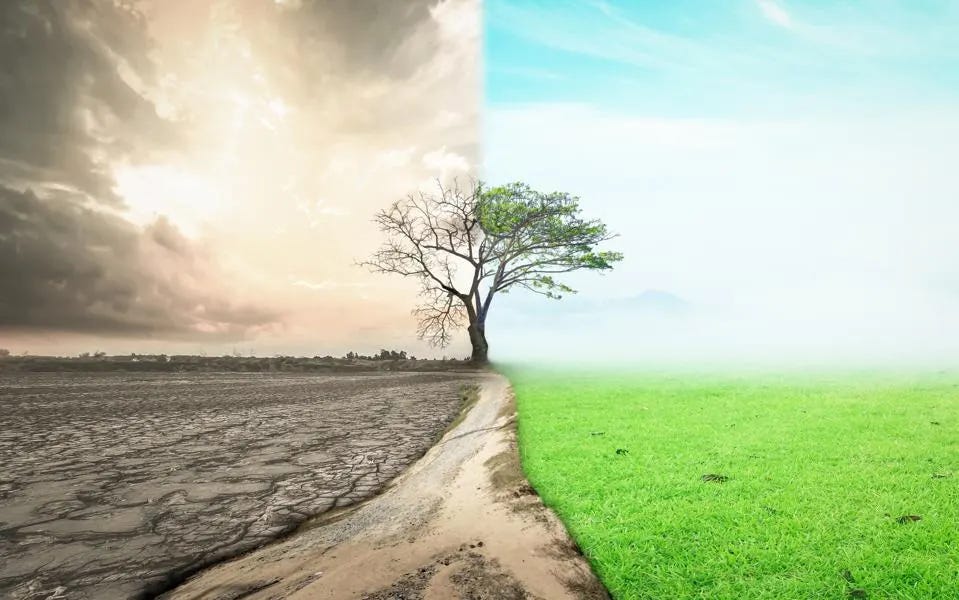William Shakespeare made the phrase ‘All the World’s a Stage’ immortal in his 1599 pastoral comedy in ‘As You Like It’:
“All the world's a stage,
And all the men and women merely Players;
They have their exits and their entrances,
And one man in his time plays many parts,
His Acts being seven ages.”
True words for humans of all ages and stages.
A couple of Sundays ago, in my ‘Bigger Picture’ piece “AI: Political Football again with TikTok”, I highlighted the broader longer-term issues at stake for the US in net opportunities vs the much-bandied about ‘risks’ of TikTok. And how this early in the AI Tech Wave, we need to be mindful of the overall unintended consequences of the ‘top-down’ unknown impacts that may be negative.
With hundreds of millions of Americans young and old spending an increasing amount of time on Bytedance subsidiary TikTok, there are potential bottom up implications of a TikTok ban to consider.
We can get a vivid example of those potential costs in the New York Times’ timely “What Happened When India Pulled the Plug on TikTok”:
“The United States is agonizing over the possibility of a ban, but India did it at a stroke. Indians adjusted quickly, and Instagram and YouTube built big audiences.”
That of course was a short-term benefit to US companies Google/Alphabet and Meta, but that’s only the tip of the iceberg impact in India. First, consider the relative context of audiences:
“In India, a country of 1.4 billion, it took TikTok just a few years to build an audience of 200 million users. India was its biggest market. Then, on June 29, 2020, the Indian government banned TikTok, along with 58 other Chinese apps, after a simmering conflict between India and China flared into violence at their border.”
“A popular form of entertainment, which had not been the subject of political debate, vanished overnight. Now, as politicians are wrangling in Washington over a plan that could shut access for the 170 million Americans using TikTok, the example set by India gives a foretaste of what may come — and how audiences and other social media companies catering to them might respond.”
“TikTok, owned by ByteDance in Beijing, came to India early, establishing a wide base in 2017 in dozens of the country’s languages. Its content — short videos — tended to be homey and hyperlocal. An endless scroll of homemade productions, many of them shot in small towns or farms and set to popular music, helped while away the hours across the world’s cheapest and fastest-growing mobile-data network. As it has in the United States, TikTok became a platform for entrepreneurial extroverts to build businesses.”
The whole piece is worth reading, if only for the vivid anecdotal examples of the impact on its people young and old.
As an avid daily TikTok user myself, I felt the TikTok ban personally, on a trip to India last month. Upon launching the app, one immediately got this screen anywhere in Mumbai:
The WSJ coincidentally had a parallel piece this weekend titled “TikTok Ban is a Cautionary Tale for the US”, also worth reading in its entirety. One searing anecdote in particular hit home for me:
“Gayatari Mohanty always wanted to be a dancer. But her father, who washes cars for a living, and her mother, a domestic helper, didn’t have enough money for lessons. So the 19-year-old New Delhi native taught herself.”
“One day in 2019, Mohanty discovered TikTok. She and a friend were drawn to the platform’s lighthearted videos. They often rushed home from school to upload clips of Mohanty’s spirited dancing to retro Bollywood songs from the 1960s and 70s.”
“Soon Mohanty had gained some 5,000 followers. That didn’t make her a star or earn her any money, but it was enough to boost her confidence.”
“My skill gave me my biggest achievement in life,” she said. “TikTok became my stage where I could show my dancing skills and get appreciated for it.”
“That all ended suddenly the next year, when India’s government banned the Chinese short video-sharing titan, citing cybersecurity concerns.”
Much has been written generally about the negative impact of smartphones and social media on our young. And yes, many of those issues need to be addressed and these services need to morph the negatives into net positives.
But that one passage above haunts me in particular, and bears repeating:
“My skill gave me my biggest achievement in life,” she said.”
“TikTok became my stage where I could show my dancing skills and get appreciated for it.”
Beyond the political issues around TikTok, and the broader concerns around social media on young people, and just the economic opportunities of the ‘Creator Economy’, we need to keep that passage in mind. Trust their changes in habits and behaviors at scale.
These technologies are a fundamental, new way for us all to scale our aspirations, skills and capabilities directly to the world. Whether it’s through blogs, tweets, youtube videos long or short, Instagram Reels, or TikTok videos.
‘All the world is our stage’, for billions who never had such direct access.
The AI Tech Wave, with its ability to augment our abilities and exhibit them to the world is only going to continue to increase this abundance of opportunity, from centuries of scarcity.
And that is to be kept in mind as a ‘North Star’ of sorts when debating the social and political ills of technologies like TikTok and its ilk. That’s the true ‘baby in the bathwater’ for our babies and beyond. And trust our young to show us the way. Stay tuned.
(NOTE: The discussions here are for information purposes only, and not meant as investment advice at any time. Thanks for joining us here)








